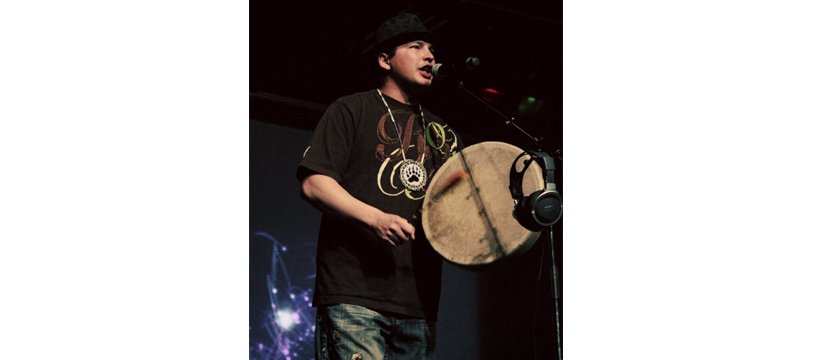Storytelling important to preserving history & tradition

Related Programs
“So much of contemporary Aboriginal art practice, whether it is visual, media, performing, or interdisciplinary art work, is rooted in our culture’s oral stories and customary knowledge,” explains Elwood Jimmy, Festival co-director and director of Sâkêwêwak Artist’s Collective. “The Sâkêwêwak Storytellers Festival strives to bridge in unique ways storytelling with contemporary art practices for audiences.”
The Sâkêwêwak Storytellers Festival was first held in 2001 as the Distinguished Storytellers Series, a joint initiative of Sâkêwêwak and the Saskatchewan Indian Federated College (now the First Nations University of Canada), and featured the work of three storytellers. Over the past few years, the event has evolved into The Sâkêwêwak Storytellers Festival, an annual multidisciplinary festival held in Regina that presents a diverse array of renowned storytellers, artists, and now a number of academics from around the world.
“It is integral that oral storytelling traditions are kept alive today,” he adds. “The languages, stories, and customary knowledge of Indigenous people in what we now all call Canada are the original expressions of this land. Along with our community’s indigenous art forms, they exist nowhere else in the world.”
This past year, the festival, which was held February 23-27, celebrated its 10th anniversary. According to Jimmy, festival participants responded really positively to this year’s programming, which included lunch events with guest storytellers, evening concerts, and afternoon Storytellers Bus Tours. The Storytellers Bus tour featured performances, tours of contemporary sites and stories of people living in Regina’s core neighbourhoods. The tour, conceived by Saskatchewan multidisciplinary artist Cheryl L’Hirondelle, was designed to create and showcase stories based on personal stories and narratives of featured storytellers and participants on the bus.
With each year, the festival strives to engage audiences in a broad range of artistic experiences, cultural traditions, and linguistic groups. Over the past decade, the festival has presented works of Indigenous people from across North America, Siberia, and Latin America.
This year the festival also focused on Hip Hop Hoop Dance, featuring performers Terrance Littletent and Chancz Perry, presented in partnership with New Dance Horizons and the Mackenzie Art Gallery. Over the next few years, Jimmy says, he hopes to expand the range of participants of the festival, as well as their outreach activities into surrounding First Nations communities who don’t always have access to the Sâkêwêwak’s urban-based programming.
According to Jimmy, Sâkêwêwak has gone through some growing pains during its first 15 years of existence. “We don’t always have the resources to program everything we’d like to, or help every artist we’d like to, but I strongly feel that we move closer to that as time goes on,” he adds.
“Working for the festival - and Sâkêwêwak in general - I have to say I am most proud of the city’s Aboriginal arts community. I am thankful that back in the 1990’s, the Aboriginal arts community in Regina was really successful in organizing, collaborating, and advocating for an organization that would privilege the voices and experiences and needs of Aboriginal artists.” For more information about the Sâkêwêwak Artists’ Collective and their Storytellers Festival, please visit: http://www.sakewewak.ca/.

